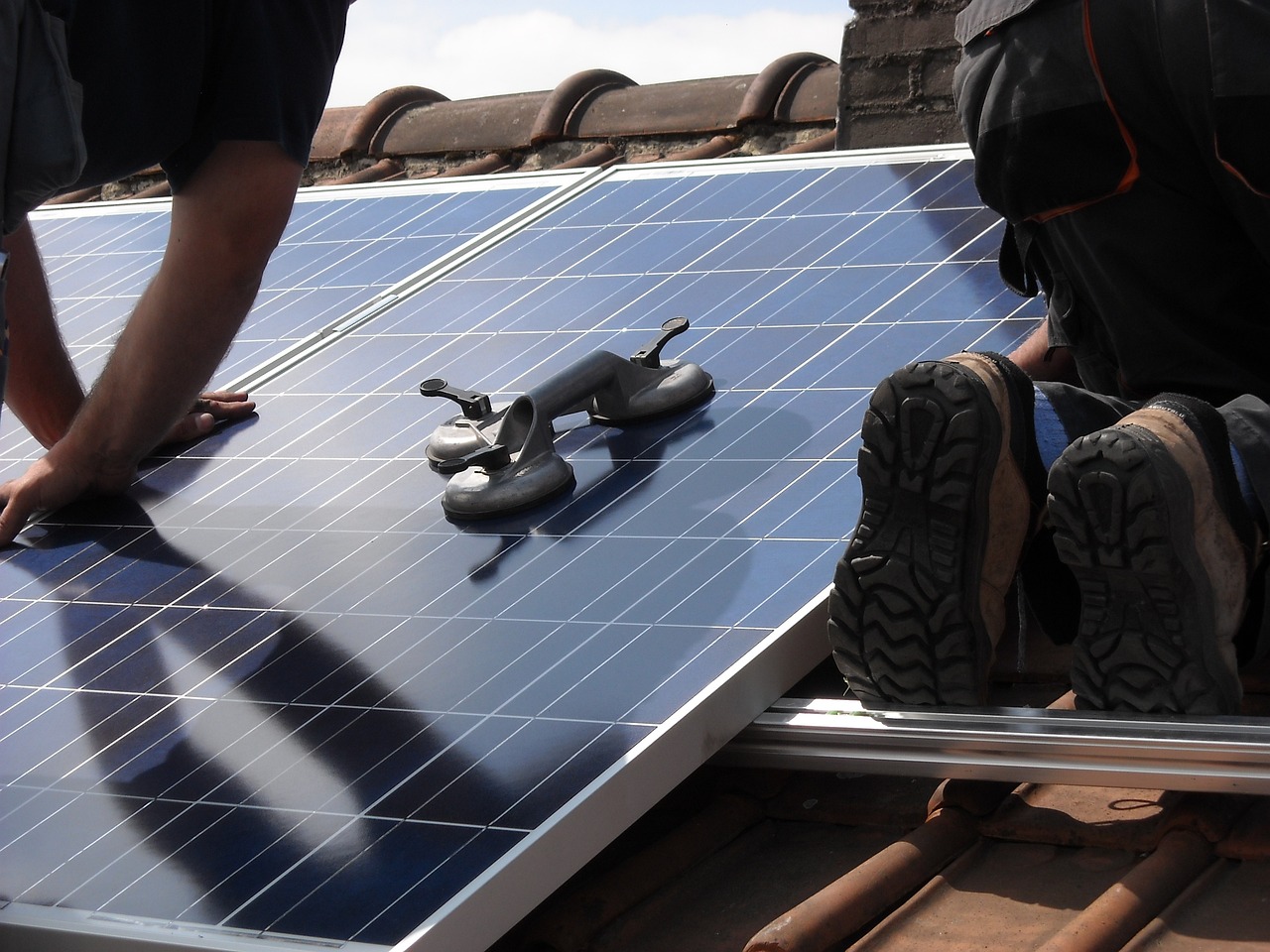
Top Benefits of Installing Solar Panels: Why Go Solar?
In today’s world, more homeowners and businesses are turning to renewable energy solutions, with solar panels leading the way as the most popular choice. Solar energy is not only a sustainable source of power, but it also offers long-term financial and environmental benefits. If you've been considering whether to invest in solar panels, this article will help you understand the top reasons why going solar is a smart decision.
With growing concerns about climate change, rising energy costs, and advancements in solar technology, there has never been a better time to make the switch to solar power. In this comprehensive guide, we’ll explore the top benefits of installing solar panels and why you should consider going solar for your home or business.
1. Significant Reduction in Energy Bills
One of the most immediate and tangible benefits of installing solar panels is the reduction in energy costs. When you switch to solar power, your home or business generates its own electricity from sunlight, significantly lowering or even eliminating your reliance on the grid.
Lower Monthly Utility Bills
With solar panels, you produce your own energy, meaning you’ll rely less on your utility company for electricity. The energy savings can vary depending on your location, electricity consumption, and the size of your solar panel system. In some cases, you may even produce more electricity than you use, leading to credits on your energy bills through programs like net metering.
Long-Term Savings
Solar panels have an average lifespan of 25-30 years. While the initial investment might seem significant, the long-term savings on energy costs often outweigh the upfront cost. In fact, many homeowners find that they recoup their initial investment in 5-10 years, depending on factors such as local utility rates and the availability of solar incentives.
2. Increased Home Value
Installing solar panels can significantly increase the value of your home. As energy efficiency becomes more important to homebuyers, properties with solar installations are often seen as more attractive. Studies have shown that homes with solar panels sell faster and for a premium compared to homes without them.
Appeal to Eco-Conscious Buyers
Many prospective homebuyers are willing to pay more for homes that have sustainable and energy-efficient features. Solar panels not only reduce energy bills but also contribute to a smaller carbon footprint, making them a valuable asset for eco-conscious buyers.
Higher Resale Value
The cost savings associated with solar panels, combined with their environmental benefits, can increase the resale value of your property. In some markets, the added value of a solar system can range from $15,000 to $30,000, depending on the size of the system and the region’s energy prices.
3. Environmental Benefits: Reduce Your Carbon Footprint
One of the most important reasons to go solar is the positive impact it has on the environment. Solar energy is a clean, renewable source of power that reduces greenhouse gas emissions and helps combat climate change.
Reduce Reliance on Fossil Fuels
Most traditional electricity is generated from fossil fuels like coal, oil, and natural gas, which release harmful pollutants into the atmosphere. Solar energy, on the other hand, is renewable and doesn't produce carbon emissions. By installing solar panels, you can reduce your reliance on fossil fuels and contribute to a cleaner, more sustainable energy grid.
Combat Climate Change
The burning of fossil fuels is a major contributor to global warming. Switching to solar energy helps reduce the amount of carbon dioxide (CO2) released into the atmosphere. According to the U.S. Environmental Protection Agency (EPA), the average residential solar panel system can offset approximately 3-4 tons of CO2 emissions annually, which is the equivalent of planting over 100 trees each year.
4. Energy Independence
With solar panels, you become less dependent on the traditional energy grid. This not only reduces your vulnerability to rising electricity rates but also offers protection during power outages.
Protection from Rising Energy Costs
Energy prices fluctuate due to market conditions, supply constraints, and fuel prices, and they tend to increase over time. By producing your own solar power, you can shield yourself from these price hikes. The more energy you produce, the less you’ll have to buy from your utility company, reducing your exposure to energy market volatility.
Backup Power Options
When combined with solar batteries, a solar energy system can provide power even during outages. Battery storage systems allow you to store excess energy generated during the day for use at night or during periods when the grid is down. This is particularly beneficial in areas prone to power outages or where energy reliability is a concern.
5. Government Incentives and Tax Credits
Governments around the world offer various incentives to encourage the adoption of solar energy. These incentives can significantly reduce the upfront cost of installing a solar system, making it more accessible to homeowners and businesses.
Federal Solar Investment Tax Credit (ITC)
In the U.S., one of the most significant incentives is the Federal Solar Investment Tax Credit (ITC), which allows homeowners and businesses to deduct a portion of the cost of installing a solar system from their federal taxes. As of 2024, the ITC covers 30% of the installation cost for residential and commercial solar systems. This tax credit can make a significant difference in reducing the overall cost of your solar investment.
State and Local Incentives
Many states and municipalities offer additional incentives for solar installations, including rebates, grants, and performance-based incentives. Some utilities also offer programs like net metering, which allows homeowners to sell excess electricity back to the grid, further reducing their energy bills.
Renewable Energy Certificates (RECs)
In some regions, solar system owners can earn Renewable Energy Certificates (RECs) for the power they produce. These certificates can be sold to utility companies or businesses looking to offset their carbon emissions, providing an additional source of income for solar panel owners.
6. Low Maintenance and Long Lifespan
Solar panels are highly durable and require very little maintenance, making them a hassle-free investment. Once installed, they typically need only occasional cleaning and routine checks to ensure they are functioning efficiently.
Minimal Maintenance Requirements
Solar panels have no moving parts, which means there is very little that can go wrong. Most maintenance involves keeping the panels clean and free from debris, such as leaves or snow, that might block sunlight. Many solar providers offer maintenance services or warranties that cover any potential issues, giving you peace of mind.
Long-Term Durability
The typical lifespan of a solar panel system is 25-30 years, and most manufacturers offer warranties that guarantee performance for at least 20-25 years. Even after this period, solar panels can continue to generate electricity, albeit at a slightly reduced efficiency.
7. Job Creation and Economic Growth
The solar energy industry is a growing sector that creates jobs and stimulates economic growth. By investing in solar power, you’re contributing to the development of a renewable energy economy.
Job Growth in the Solar Industry
According to the Solar Energy Industries Association (SEIA), the solar industry has created hundreds of thousands of jobs worldwide. These jobs range from manufacturing and installation to sales and maintenance. As demand for solar power increases, so does the need for skilled workers, providing employment opportunities in communities around the globe.
Economic Impact of Solar Energy
Solar power contributes to local economies by reducing energy costs for homeowners and businesses and by promoting energy independence. Additionally, the growth of the solar industry supports technological innovation, infrastructure development, and investment in clean energy.
8. Solar Panels Can Work in Almost Any Climate
Contrary to popular belief, solar panels can generate electricity even in cloudy or cold climates. While solar panels perform best in direct sunlight, they can still capture and convert diffuse sunlight into electricity.
Performance in Cold Climates
Solar panels actually operate more efficiently in colder temperatures. As long as the panels are exposed to sunlight, they will continue to generate electricity, even in the winter months. In fact, some of the largest solar markets in the world, like Germany, are located in colder climates.
Cloudy and Rainy Days
While solar panels produce less energy on cloudy days, they can still generate a significant amount of electricity from indirect sunlight. Additionally, rain helps keep solar panels clean by washing away dust and debris, which can improve their efficiency.
9. Versatile Applications for Solar Power
Solar power is highly versatile and can be used in a wide range of applications beyond residential and commercial installations. From powering remote locations to providing energy for transportation and portable devices, the possibilities for solar energy are vast.
Off-Grid Living
For those seeking energy independence, solar panels provide an excellent solution for off-grid living. Solar power can supply electricity to remote areas without access to the traditional power grid, making it an ideal choice for cabins, farms, and rural properties.
Solar-Powered Devices
In addition to powering homes and businesses, solar energy can be used to charge a variety of devices, from portable solar chargers for smartphones and laptops to solar-powered outdoor lighting and water heaters. These technologies offer a convenient, eco-friendly way to reduce reliance on traditional energy sources.
Conclusion
The benefits of installing solar panels are clear: from significant cost savings and environmental protection to energy independence and increased property value. As solar technology continues to advance and government incentives make solar more affordable, the case for going solar becomes stronger every day.
Whether you're looking to lower your energy bills, reduce your carbon footprint, or invest in a more sustainable future, solar panels offer a reliable, long-term solution. Now is the perfect time to make the switch and enjoy the many rewards of clean, renewable energy.
